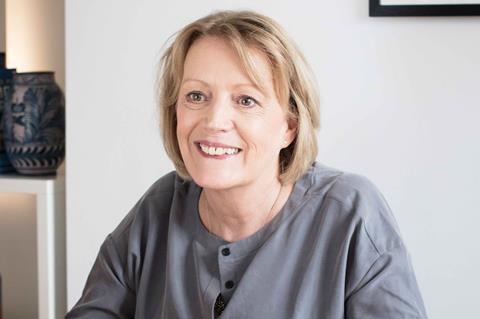Dealing with redundancy requires its own set of skills, writes Louise Rodgers

We are hardwired to desire a sense of belonging. It is as basic to our survival as food and shelter. It once helped keep us alive in the presence of enemies – human or animal. Those that belonged to a group, or intimate kinship, stood a greater chance of survival.
Studies have shown that we crave connection in the same part of the brain that we crave food, and we experience social exclusion in the same part of the brain that we experience pain. So how do we feel when, for one reason for another, we are cast out of a group or organisation with which we have experienced a strong sense of belonging?
This is what happens when we go through redundancy (an awful word) or are ‘let go’ (not much better) from somewhere we have worked, such as an architectural or design practice, perhaps because our employer is experiencing cash-flow issues. Or jobs have either been put on hold or cancelled. No matter how compassionately the process is approached, and how sensitively the individuals who who deliver the bad news are, it’s hard to avoid some emotional fallout.
Our whole experience of belonging within a system is like any story – it has a beginning, a middle and an end. Generally speaking, we pay lots of attention to the beginning and the middle, but the leaving doesn’t always receive the same consideration.
After redundancy the emphasis is often on ‘bouncing back’ or ‘moving on’, and we are encouraged to refocus our mindset to be forward-focused, without delay. For some, particularly those who are anxious about the future for financial reasons, sorting out a new position as soon as they can, might be the right thing to do. However, others might benefit from a period of reflection and recovery before starting a new story and, with any luck, they may have a pot of cash to support them while they do so.
The first step in dealing with the emotional fallout of redundancy is to acknowledge and process your feelings
There are of course plenty of practical tips you can take after redundancy ranging from reconnecting with ex-colleagues and other professional contacts, reviewing your CV and assessing your finances, and updating your LinkedIn profile. But how do you cope with the emotional impact of suddenly finding yourself outside of a group with which you previously shared a strong sense of belonging? Here are some ideas.
Acknowledge your feelings. The first step in dealing with the emotional fallout of redundancy is to acknowledge and process your feelings. These may include rejection, even shame. There is grieving to be done before you can move on, and you need to give yourself permission to do this. Take time to sit with and reflect on your feelings and talk to friends, family, a trusted advisor, or a therapist if that is what you need to do.
Practice self-care and compassion. Being made redundant almost inevitably leads to stress and when we are stressed we often forget to look after ourselves. Doubling down on good habits such as regular exercise, good nutrition, and making sure you get enough sleep, can help. Engaging in relaxation techniques such as yoga, meditation, or deep breathing exercises can also reduce anxiety and improve your mood. This is as much about self-compassion as it is about self-care. How would you comfort a friend in the same situation?
Find comfort in discomfort. You may have found yourself in a stage of transition when you didn’t want to be, but transition can often be a good thing, bringing new opportunities. In the meantime, it may help to think of yourself as occupying a kind of liminal space – a waiting area between one job and the next. This can be uncomfortable, especially if you have been employed in one place for a long time, but if you reflect on other times you have experienced a kind of liminality, such as going to university or moving to a new city, you will know that good things lie on the other side. Remember how you navigated those other changes and the strengths and skills you used then. This is just another of those times, and the same resources are available to you.
When we move out of one situation, we are inevitably moving towards another. How we do this will vary from one person to another, but self-care and compassion, sitting with rather than fighting our feelings, and accepting the liminality of uncertainty, can all help with that transition.
Postscript
Louise Rodgers is Building Design’s professional coach. A personal and business coach, she co-created and co-delivers Step Up, a leadership development programme for built environment consultants.
Do you have a question for Louise? If so email louise@eidyia.co.uk. She will use the most interesting in her columns but cannot enter into individual correspondence.
















No comments yet